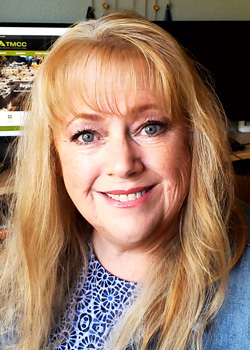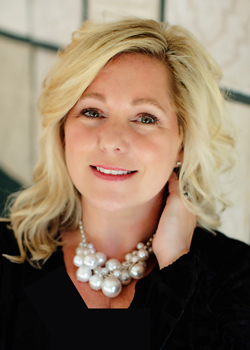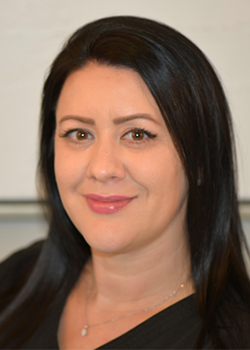Advocating for the future of dental assisting

Dentistry is continuously evolving, and so is the dental assisting profession. Find out how three dental assistants are using their voices to support the future of dental assisting.
“I’m not a politician. I’m a real person.”
In early 2023, the Oregon state legislature introduced two bills that would prohibit the board of dentistry from requiring dental assistants to pass written exams before taking dental x-rays or earning Oregon state dental assisting certifications, including any level of expanded functions dental assistant. Many dental professionals opposed this legislation, including Christina Becker, CDA. As a dental education instructor at Portland Community College and owner of the Dental Assisting Training Institute, Becker was in a unique position to stand up for her profession.
“It was really inspiring to go through this process and realize our voices haven’t been heard in the past. It woke us up. It ignited something in our dental community — not just among assistants, but with dentists and hygienists as well.”
— Christina Becker, CDA
“I realized there weren’t a lot of dental assistants who could show up because the legislative process happens during our work hours,” Becker says. “My schedule is different because I can move things around to show up for testimony and other events.”
Becker submitted written testimony to the Oregon legislature explaining why the bills would diminish the dental assisting profession and put patients at risk. “I love writing, but it can be a little hard when you’re writing to people who don’t have knowledge of dentistry, so you really have to break it down,” Becker says. “But submitting my testimony was important.”
Following her submittal, Becker registered to testify in opposition of the bills at an Oregon House of Representatives committee hearing. When she was called to testify, she was determined to show up for her profession. “My testimony showed that I care about my profession and the people in it,” says Becker. “Even though I was nervous, it just showed that that I’m not a legislator. I’m not a politician. I’m a real person.”
Due in large part to the efforts of Becker and her peers to educate legislators about the dental assisting profession, one of the bills did not proceed and the other was significantly amended to remove provisions prohibiting the board of dentistry from using written exams in the dental assisting certification process. The amendment also gives a voice to dental assistants through the creation of an advisory group of members with dental assisting experience to address the workforce shortage.
“It was really inspiring to go through this process and realize our voices haven’t been heard in the past,” Becker says. “It woke us up. It ignited something in our dental community — not just among assistants, but with dentists and hygienists as well.”
“It was a very empowering experience.”
Many areas of the country are experiencing dental assistant shortages, and Nevada is no different. As the dental assisting academic program director at Truckee Meadows Community College in Reno, Nevada, Julie Muhle, CDA, realized her state needed a viable career path for dental assistants.
“We’re seeing a lot of young people coming into dental assisting and leaving rapidly because they say you don’t even have to go to school for it and it’s not very valued,” says Muhle. “As I heard that frequently, in addition to the concerns of experienced assistants who wanted career growth within dental assisting, I just felt like we had to improve the career path in our state.”

“I felt like so many people were excited about this bill. It was a very empowering experience, and I would say don’t be afraid to do it.”
— Julie Muhle, CDA
Muhle teamed up with local dental assisting organizations and other dental professionals on a bill to create an Expanded Function Dental Assistant (EFDA) certificate. After reviewing similar legislation from other states, they developed a plan to make EFDA certificates as comprehensive and accessible as possible.
“We made it as robust as we could, and we wanted to make sure there were avenues that didn’t cost a lot,” Muhle says. “We wanted these expanded function certificates and the education to be very stable and inexpensive to really encourage people to do this.”
Muhle and her partners worked to build relationships with local representatives and create support for the bill, and she testified at the Nevada legislature. Their efforts culminated in the bill passing and being signed by the governor in June.
“I felt like so many people were excited about this bill. It was a very empowering experience, and I would say don’t be afraid to do it,” Muhle says.
“Start delivering a message.”
Volunteering time and expertise is another way to make a big impact. When Julie Varney, RDA, CDA, COA, CDIPC, of Syracuse, New York, was appointed to serve on the New York State Board for Dentistry, she saw an opportunity to represent dental assistants in her state. Varney is one of a handful of dental assistants who serve on a dental board, as only 12 state boards have positions for dental assistants or EFDAs.
“I’m an adviser regarding New York’s rules and laws and how to make the public more aware of the role of dental assistants to ensure public protection,” says Varney. “I am working with the dental board to increase the number of registered dental assistants in the state of New York and move the profession forward for the betterment of our careers and longevity.”

“Deliver your message, whether it’s on social media, at board meetings, or at your state’s dental conference. The more we talk about the changes we would like to see, the more that they’ll start to happen.”
— Julie Varney, RDA, CDA, COA, CDIPC
In addition to advancing the dental profession, Varney and the board — including dentists, hygienists, and a public member — address issues that protect public interests. “The board is composed of healthcare providers engaged in patient care,” says Varney. “My role on the board is to represent and be the voice of dental assistants in New York and weigh in on how topics the board is discussing impact the dental assisting profession.”
Many dental assistants would like to see changes in the profession and their careers, such as higher pay and better benefits. Varney encourages dental assistants to work together as a unified group to find solutions to address these issues.
“Work collaboratively with other people who want to go in the same direction and present your proposal to the board to ensure it falls within your state’s statutes and regulations. Then, deliver your message, whether it’s on social media, at board meetings, or at your state’s dental conference,” says Varney. “The more we talk about the changes we would like to see, the more that they’ll start to happen.”


